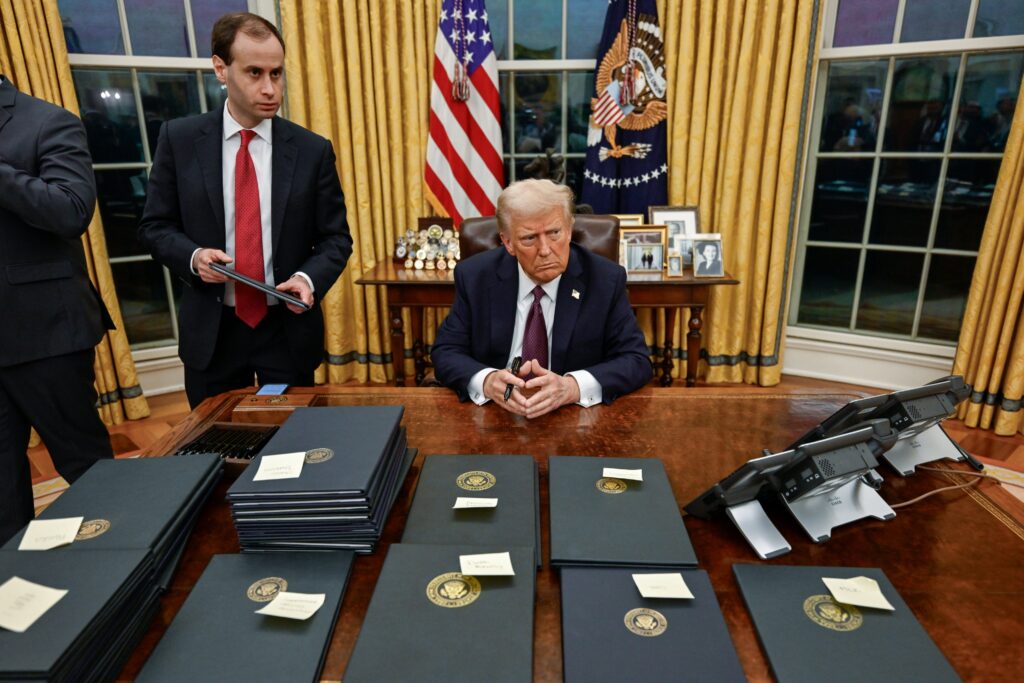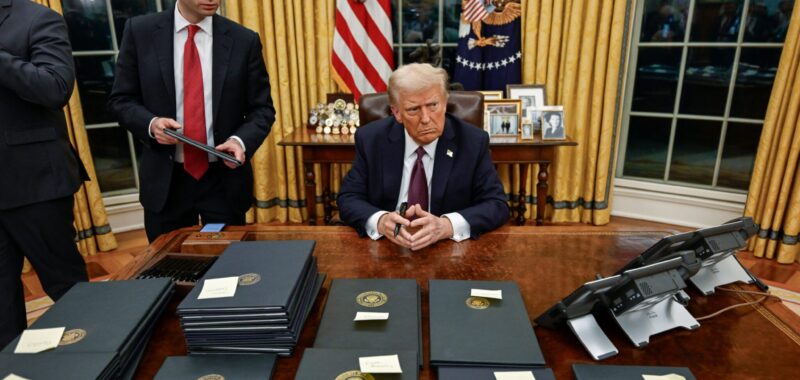
Donald Trump used his first day in office to send a letter to the United Nations to withdraw from a global agreement to reduce greenhouse gas emissions.
It will take a year for the withdrawal from the UN Paris Agreement to go through, but at that point, the U.S. will join Libya, Iran, and Yemen as the countries not in the pact.
When Trump pulled out in 2017, the U.S. was required to take part for at least three years, so the exit didn’t happen until 2020. Joe Biden rejoined when he took office in 2021.
A study by the Climate Action Tracker, which analyzes global climate pledges and action, found the exit would have led to an increase in greenhouse gas emissions by 2030 of only 3%.
In an executive order, Trump said the Paris Agreement is “among a number of international agreements that don’t reflect U.S. values and steer American taxpayer dollars to countries that do not require, or merit, financial assistance in the interests of the American people.”
Impact on Travel and Tourism
Many U.S. travel businesses have aligned themselves with the Paris climate targets and some went even further by signing up to separate UN climate pacts such as the 2021 Glasgow Declaration on climate action in tourism.
A UN source told Skift there have been no requests from U.S. companies to withdraw from the declaration.
Trump’s move comes after 2024 was declared the hottest year on record and the first to break the 1.5C threshold outlined in the pact.
Jeremy Smith founded a group called Tourism Declares A Climate Emergency, which was made up of travel companies, including Intrepid Travel, Better Places, Explore, and the Adventure Travel Trade Association.
He said “it’s not so much that one country has exited the Paris Agreement. It’s that the whole world has just crossed its threshold of 1.5C. If people are considering their climate action, they should pay more attention to physics, and less to politics.”
Airlines Say They’ll Stick to Climate Targets
Some U.S. airlines have said they remain committed to reduce emissions and follow industry targets set out by the International Air Transport Association (IATA).
Most major U.S. airlines including the four largest, American, Delta, Southwest and United have in the past aligned themselves with the Paris Agreement or goals set out by IATA.
Delta said in its latest sustainability report that it is committed to achieve net-zero emissions and aligning the business with the Paris Agreement.
United said in its environment strategy that it is “committed to a mid-term target of reducing, compared to 2019, its carbon emissions intensity by 50% by 2035. This intensity target is intended to align United’s net zero goal with the Paris Agreement.”
Southwest previously told Skift that it will remain committed to industry goals.
“The current industry goal of net zero carbon emissions by 2050 was adopted by IATA, Airlines for America (A4A) and the Federal Aviation Association (FAA) in 2021 and the International Civil Aviation Organization (ICAO) in 2022,” a Southwest spokeswoman said.
When asked if Trump’s stance on climate targets might impact his company’s climate goals, American Airlines CEO, Robert Isom said, “no, conservation is really important.”
“As an industry we all look to 2050 net-zero, we’ve got a lot of work to do and it’s going to take investment from government and the industry. Airlines can’t do it on their own.”
Skift’s in-depth reporting on climate issues is made possible through the financial support of Intrepid Travel. This backing allows Skift to bring you high-quality journalism on one of the most important topics facing our planet today. Intrepid is not involved in any decisions made by Skift’s editorial team.

